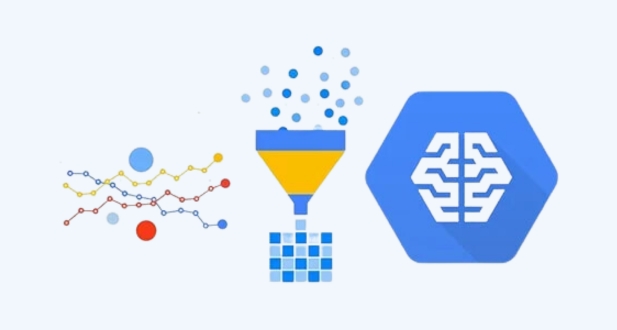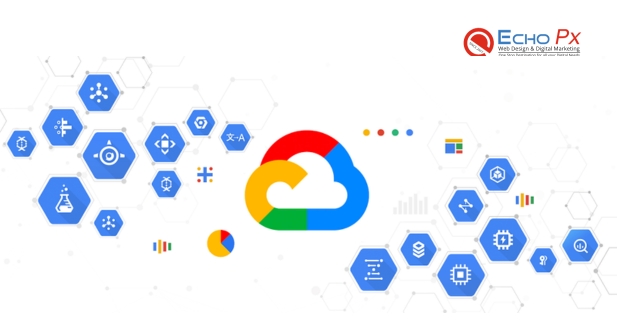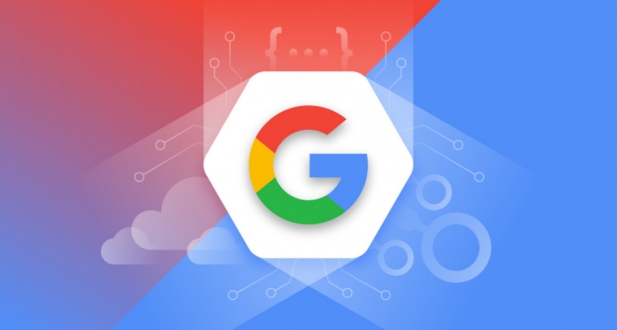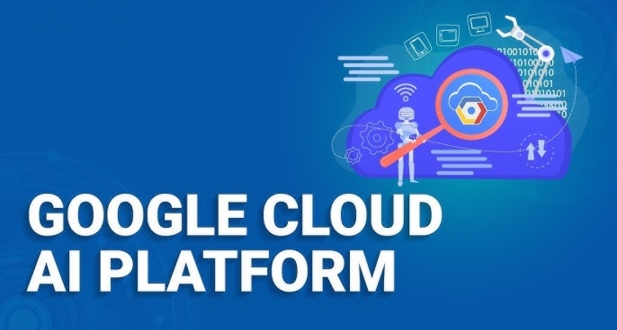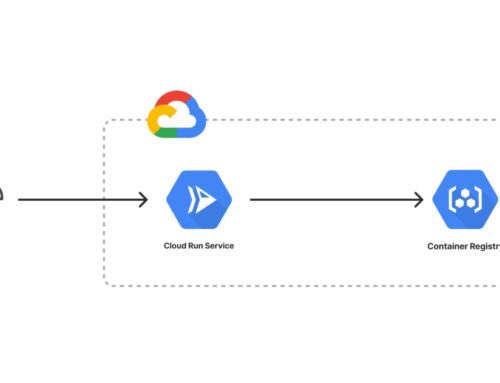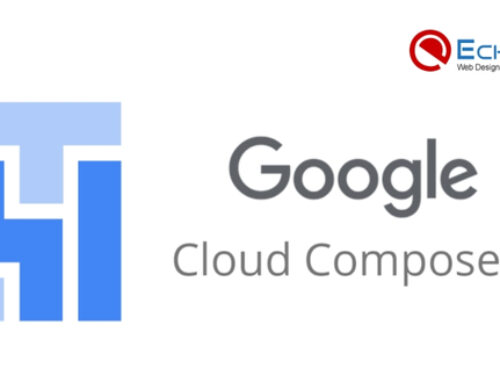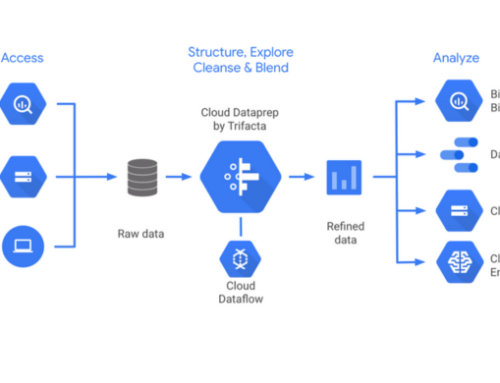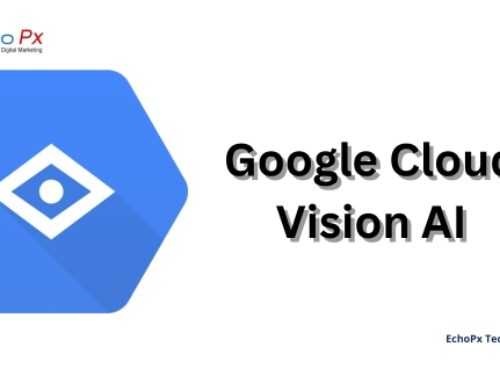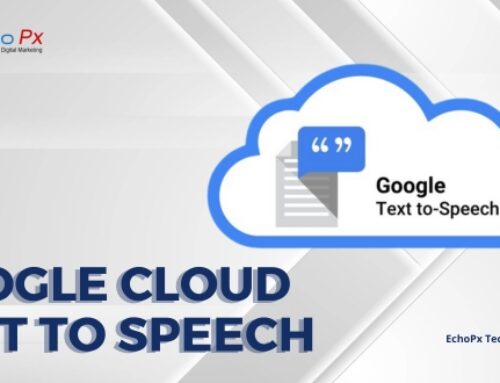Introduction:
Machine learning has emerged as a transformative technology, revolutionizing the way businesses operate and make decisions. It is a subset of artificial intelligence (AI) that enables computers to learn and improve from experience without being explicitly programmed. This powerful capability has had a profound impact on various industries, from healthcare and finance to marketing and manufacturing. Machine learning algorithms analyze large datasets, identify patterns, and make predictions, unlocking new possibilities and efficiencies for organizations.
In the realm of cloud computing, Google Cloud Platform (GCP) has established itself as a leading service provider, offering a robust infrastructure for hosting and deploying machine learning applications. GCP provides a suite of cloud computing services, including storage, computing power, and data analytics, all of which are integral to supporting machine learning workloads. The platform’s scalability, flexibility, and advanced tools make it an attractive choice for businesses seeking to harness the full potential of machine learning.
GCP Overview:
Google Cloud Platform offers a comprehensive set of features that cater to the diverse needs of businesses in the digital era. From infrastructure as a service (IaaS) to platform as a service (PaaS) and software as a service (SaaS), GCP covers the entire spectrum of cloud computing services. Key components of GCP include computing resources through Compute Engine, scalable storage with Cloud Storage, and managed services like BigQuery for data analytics.
One of the reasons businesses choose GCP for their cloud infrastructure is the platform’s global reach. GCP has data centers strategically located around the world, allowing organizations to deploy applications and services close to their end-users for improved performance and reduced latency. The platform also emphasizes security, compliance, and reliability, addressing critical concerns for businesses operating in various industries.
Furthermore, GCP’s machine learning capabilities stand out, with tools like TensorFlow and AI Platform enabling developers and data scientists to build, train, and deploy machine learning models at scale. The integration of machine learning into GCP enhances its capabilities for data analysis, pattern recognition, and predictive modeling, empowering businesses to extract valuable insights from their data.
GCP Machine Learning Services
Google Cloud Platform offers a comprehensive suite of cloud computing services, making it an ideal choice for businesses looking to leverage the power of machine learning. The platform’s global infrastructure, security features, and advanced tools position it as a key player in the ever-evolving landscape of cloud computing and artificial intelligence.
Google Cloud Platform (GCP) offers a robust and comprehensive suite of machine learning services designed to empower businesses in harnessing the potential of artificial intelligence (AI). These services provide scalable and efficient solutions for organizations looking to integrate machine learning into their applications and processes. GCP’s machine learning services are renowned for their flexibility, reliability, and the ability to cater to a wide range of use cases.
AI Building Blocks:
One of the primary pillars of GCP’s machine learning services is the AI Building Blocks. These are pre-trained models that address specific tasks, allowing developers to leverage AI capabilities without the need for extensive expertise in machine learning. These Building Blocks cover a variety of functionalities such as natural language processing, computer vision, and translation. By integrating these Building Blocks, developers can significantly accelerate the development of AI-powered applications, reducing time-to-market and development complexity.
AI Platform:
The AI Platform is another essential component of GCP’s machine learning services. It provides a scalable and collaborative environment for building, deploying, and managing machine learning models. This platform supports the entire machine learning lifecycle, from data preparation and model training to deployment and monitoring. AI Platform facilitates the development of custom machine learning models, enabling organizations to tailor solutions to their specific needs. It also offers powerful tools for versioning, experimentation, and collaboration among data scientists and developers.
AI Hub:
AI Hub serves as a centralized repository for machine learning assets, fostering collaboration and knowledge-sharing within organizations. It allows teams to store, discover, and deploy models, notebooks, and other resources in a secure and organized manner. This centralized approach enhances collaboration among data scientists, developers, and other stakeholders, promoting the reuse of models and reducing redundancy in machine learning development efforts. AI Hub plays a crucial role in streamlining workflows, improving efficiency, and maintaining consistency across machine learning projects.
GCP’s suite of machine learning services is structured around these three main pillars: AI Building Blocks for ready-made, task-specific models, AI Platform for end-to-end machine learning lifecycle management, and AI Hub for centralized collaboration and asset management. Together, these components empower organizations to unlock the full potential of AI and drive innovation in various domains.
AI Building Blocks
Vision AI:
Vision AI involves the use of artificial intelligence to analyze and recognize images. This technology utilizes sophisticated algorithms to identify patterns and objects within visual data. Image recognition and analysis are crucial components of Vision AI, enabling machines to understand and interpret visual information. This building block finds applications in various industries, including healthcare for medical image analysis, retail for facial recognition in stores, and manufacturing for quality control through image inspection. In the automotive sector, Vision AI plays a role in autonomous vehicles by enabling them to perceive and navigate their surroundings.
Video AI:
Video AI extends the capabilities of AI to the analysis and annotation of video content. This includes the ability to understand and interpret the visual information within videos, identifying objects, actions, and patterns. In the media and entertainment industry, Video AI is utilized for content recommendation systems, video summarization, and even personalized advertising. Moreover, it finds applications in security and surveillance by enabling the automated monitoring of video feeds for suspicious activities.
Natural Language Processing (NLP):
NLP involves the interaction between computers and humans using natural language. It encompasses text and language understanding, allowing machines to comprehend, interpret, and respond to human language. Sentiment analysis, entity recognition, and language translation are key aspects of NLP. In customer service, NLP is employed for chatbots and virtual assistants, providing users with more intuitive and human-like interactions. It also plays a crucial role in social media analytics, extracting insights from vast amounts of textual data.
Translation AI:
Google Cloud Platform’s (GCP) language translation services exemplify Translation AI, offering the capability to translate text between different languages. Real-world applications of Translation AI are diverse, ranging from facilitating global communication and collaboration to breaking down language barriers in international business. In education, this technology can aid language learners, making learning materials accessible in various languages. Additionally, it contributes to improving cross-cultural understanding by enabling the dissemination of information across linguistic divides.
Speech AI:
Speech AI involves the conversion of spoken language into text (speech-to-text) and vice versa (text-to-speech). This building block is integral to the development of voice assistants, transcription services, and other applications that require interaction through spoken language. In healthcare, Speech AI can assist in medical transcription, converting spoken medical notes into written text. It also enhances accessibility for individuals with visual impairments by converting text into speech. In the business sector, Speech AI can streamline communication and enhance productivity by enabling voice-controlled interfaces and automated transcription services.
AI Platform
Google Cloud Platform’s (GCP) AI Platform serves as a comprehensive solution for the entire machine learning lifecycle, encompassing the development, deployment, and management of machine learning models. This platform offers a suite of tools and services designed to streamline and enhance the efficiency of AI-related tasks.
AI Platform stands out with its user-friendly interface and robust set of features. It provides a centralized environment for data scientists and developers to collaborate on machine learning projects. The platform facilitates seamless integration with other GCP services, offering scalability, reliability, and security. Furthermore, AI Platform automates many aspects of the machine learning workflow, reducing development time and enhancing productivity.
Model Development:
AI Platform supports a variety of tools and frameworks, allowing data scientists to work with their preferred technologies. This flexibility ensures that developers can leverage popular frameworks such as TensorFlow and scikit-learn, along with other GCP tools. Collaborative model development is made easy through AI Platform Notebooks, which enable multiple team members to work on the same project simultaneously. This fosters efficient collaboration and accelerates the model development process.
Model Deployment:
Deploying machine learning models at scale is a critical aspect of the AI Platform. The platform provides mechanisms to seamlessly deploy models, making them accessible for predictions and integrations with other applications. Effective model deployment involves considerations for scalability, reliability, and versioning. AI Platform offers tools for managing and monitoring deployed models, ensuring that they perform optimally in real-world scenarios.
Hyperparameter Tuning:
To optimize the performance of machine learning models, AI Platform incorporates hyperparameter tuning. This involves systematically searching for the best set of hyperparameters to enhance a model’s accuracy and generalization. The platform provides automated hyperparameter tuning, simplifying the process for data scientists. Best practices for hyperparameter optimization, including strategies for balancing exploration and exploitation, contribute to achieving optimal model performance.
Prediction and Serving:
AI Platform offers a reliable mechanism for serving predictions derived from machine learning models. This facilitates the integration of models into various applications, enabling real-time predictions. The platform ensures low-latency and high-throughput serving, making it suitable for applications with dynamic and demanding workloads. Developers can seamlessly integrate machine learning models into their applications, unlocking the potential for intelligent and data-driven decision-making.
Google Cloud Platform’s AI Platform provides a robust and comprehensive solution for the end-to-end machine learning lifecycle. From model development to deployment, hyperparameter tuning, and prediction serving, the platform offers a suite of tools and services that empower data scientists and developers to create, deploy, and manage machine learning models efficiently and at scale.
AI Hub
AI Hub serves as a centralized repository for machine learning assets, playing a pivotal role in the efficient management and organization of crucial resources within the realm of artificial intelligence. This platform offers a comprehensive overview of the diverse components that constitute the organization’s machine learning landscape, providing a structured and accessible framework for the storage and retrieval of essential assets.
In essence, AI Hub acts as a digital ecosystem that houses a myriad of machine learning models, datasets, and associated tools. It functions as a one-stop destination, simplifying the process of asset discovery and utilization. This centralized approach promotes efficiency, as data scientists, engineers, and other stakeholders can seamlessly navigate through the repository to identify and leverage the resources they require for their projects.
One of the key advantages of AI Hub lies in its ability to facilitate collaborative model development within organizations. By providing a shared space for data scientists and other team members, the platform fosters a collaborative environment where ideas and expertise can be exchanged seamlessly. This collaborative model development ensures that the organization benefits from a collective pool of knowledge and experiences, accelerating the pace of innovation and problem-solving in the field of artificial intelligence.
Furthermore, AI Hub promotes the sharing of machine learning models among team members, fostering a culture of knowledge exchange and reuse. This not only enhances productivity but also contributes to the development of best practices within the organization. As models are shared, tested, and refined collaboratively, the organization can build a repository of high-quality, validated models that serve as a valuable resource for future projects.
AI Hub is not merely a storage facility for machine learning assets; it is a dynamic platform that enhances collaboration, accelerates innovation, and establishes a foundation for best practices within organizations venturing into the realm of artificial intelligence. Its role as a centralized hub for model development and sharing reinforces its significance as a catalyst for advancements in the field, ultimately contributing to the growth and success of the organization in the era of artificial intelligence.
Best Practices
Best Practices for Leveraging GCP Machine Learning Services:
Google Cloud Platform (GCP) offers a robust set of machine learning services that empower businesses to build and deploy powerful models. To make the most of these services, adhering to best practices is essential. Firstly, it’s crucial to understand the specific requirements of your machine learning tasks. GCP provides a variety of tools, including AI Platform, AutoML, and TensorFlow, each suited to different use cases. Therefore, carefully selecting the appropriate service for your application ensures optimal performance and resource utilization.
Data quality is paramount in machine learning, and GCP provides tools like BigQuery and Dataflow to preprocess and clean data efficiently. Prioritize data quality to enhance the accuracy and reliability of your models. Additionally, leverage GCP’s managed services to handle infrastructure and scalability automatically. This allows your team to focus on model development rather than managing infrastructure, leading to increased efficiency.
Collaboration and version control are critical aspects of machine learning projects. Utilize GCP’s versioning capabilities, particularly with tools like AI Platform and TensorFlow, to track changes in your models and experiments. This promotes collaboration among team members and facilitates the reproduction of results.
Ensure security and compliance by implementing GCP’s identity and access management features. Restrict access to sensitive data, use encryption for data in transit and at rest, and regularly audit and monitor activities within the environment. Compliance with industry standards and regulations is fundamental for any machine learning application, and GCP provides the necessary tools to meet these requirements.
Tips for Optimizing Performance and Cost:
Optimizing performance and cost efficiency is essential when utilizing GCP machine learning services. To achieve this, start by understanding the pricing model of the chosen services. GCP offers various pricing options, including on-demand, preemptible, and custom machine types. Choose the most cost-effective option based on your application’s requirements and resource usage patterns.
Take advantage of GCP’s managed services for autoscaling. Configure your machine learning workloads to dynamically scale based on demand, automatically adding or removing resources as needed. This ensures optimal performance during peak times while minimizing costs during periods of lower demand.
Regularly monitor and analyze resource utilization using GCP’s monitoring and logging tools. Identify and address bottlenecks, optimize code, and scale resources accordingly. This proactive approach helps prevent performance issues and allows for efficient resource allocation.
Consider using GCP’s machine learning accelerators, such as GPUs and TPUs, to enhance model training and inference speed. While these accelerators may come with additional costs, they can significantly improve overall performance, enabling faster model development and deployment.
Explore GCP’s cost management tools, such as budget alerts and billing reports, to gain insights into your spending patterns. Set budget thresholds and receive alerts when nearing or exceeding them, allowing you to make informed decisions about resource allocation and scaling to maintain cost efficiency.
Future Trends
In the ever-evolving landscape of technology, machine learning stands out as a key driver of innovation. As we look to the future, several emerging trends are shaping the trajectory of machine learning. One notable trend is the increasing integration of machine learning with other technologies such as edge computing and the Internet of Things (IoT). This integration allows for real-time data processing and analysis, enabling more efficient and intelligent decision-making in various domains, from healthcare to smart cities.
Another significant trend is the growing emphasis on responsible and ethical AI. As machine learning systems become more prevalent, there is a heightened awareness of the ethical implications and potential biases inherent in these systems. Stakeholders are placing greater importance on ensuring that machine learning models are fair, transparent, and accountable. This trend is driving the development of frameworks and guidelines for responsible AI, aiming to strike a balance between innovation and ethical considerations.
GCP’s Position for the Future
Google Cloud Platform (GCP) is strategically positioned to embrace and capitalize on these future trends in machine learning. GCP has been a pioneer in the development and deployment of machine learning services and tools. Its robust infrastructure, combined with a comprehensive set of machine learning APIs, positions it as a leading platform for businesses seeking to harness the power of AI.
One key strength of GCP is its commitment to providing scalable and flexible solutions. As machine learning applications continue to grow in complexity and scale, GCP’s infrastructure and services can seamlessly adapt to meet evolving requirements. The platform’s integration with popular machine learning frameworks, such as TensorFlow, ensures that developers have the flexibility to use familiar tools while taking advantage of GCP’s powerful capabilities.
GCP’s Commitment to Innovation
GCP’s commitment to staying at the forefront of machine learning innovation is evident through its continuous investment in research and development. The platform consistently introduces new features and improvements, staying ahead of the curve in the rapidly evolving field of machine learning. From advancements in natural language processing to innovations in computer vision, GCP remains dedicated to pushing the boundaries of what is possible with machine learning.
Furthermore, GCP actively engages with the open-source community, contributing to projects and collaborating with researchers and developers worldwide. This commitment to an open and collaborative approach fosters a vibrant ecosystem of innovation, ensuring that GCP remains a hub for cutting-edge machine learning developments.
GCP’s strategic positioning and unwavering commitment to innovation make it a formidable player in the future of machine learning. As technology continues to advance, GCP is well-equipped to empower businesses and developers to navigate the evolving landscape of machine learning with confidence and efficiency.
Conclusion
Google Cloud Platform’s machine learning services empower organizations to harness the full potential of artificial intelligence and data-driven insights. From the seamless integration with TensorFlow to the democratization of machine learning through AutoML, GCP provides a comprehensive suite of tools for building, deploying, and scaling machine learning models.
As industries continue to evolve, the demand for innovative and scalable machine learning solutions will persist. GCP’s commitment to advancing its machine learning offerings, coupled with its robust infrastructure and ecosystem, positions it as a leading choice for organizations seeking to embark on their machine learning journey.
GCP provides TensorFlow as a service, allowing users to run TensorFlow models on GCP infrastructure. It also offers tools like TensorBoard for visualization and monitoring.
BigQuery ML is a service on GCP that allows users to create and execute machine learning models directly in BigQuery using SQL queries.
GCP provides services like AI Platform and Vertex AI for model training and deployment. Users can use these services to train models at scale and deploy them for prediction.
Key features include managed services, scalability, integration with popular frameworks, support for AutoML, and tools for model monitoring and debugging.
Yes, GCP supports deploying machine learning models on the edge using services like Edge TPU and AI Platform Prediction.
